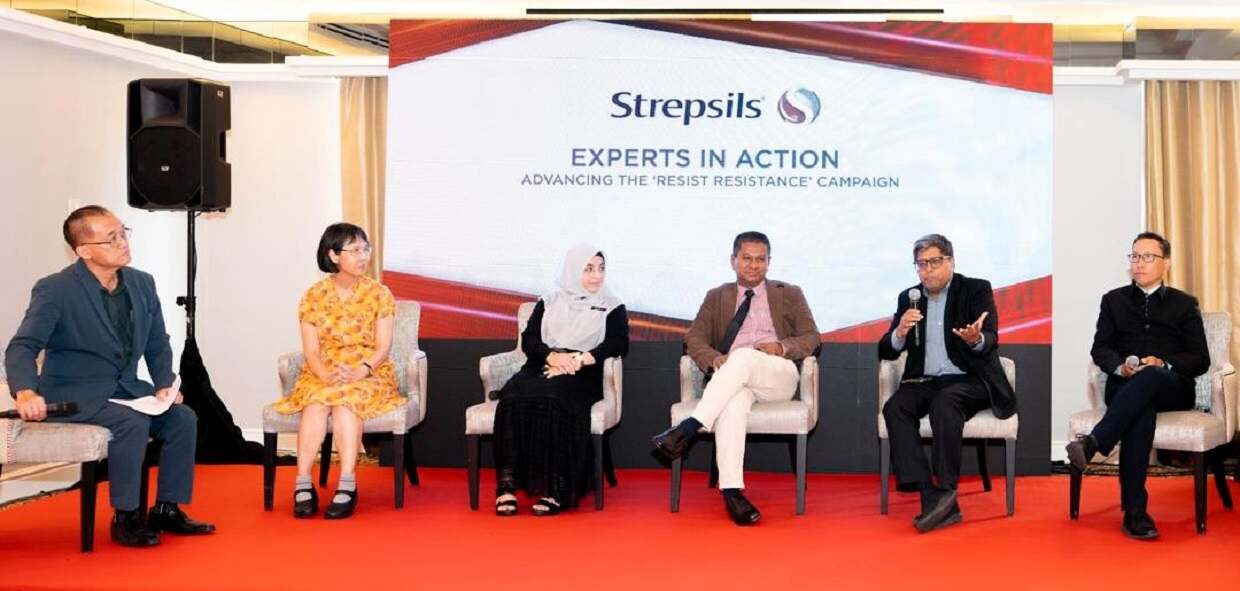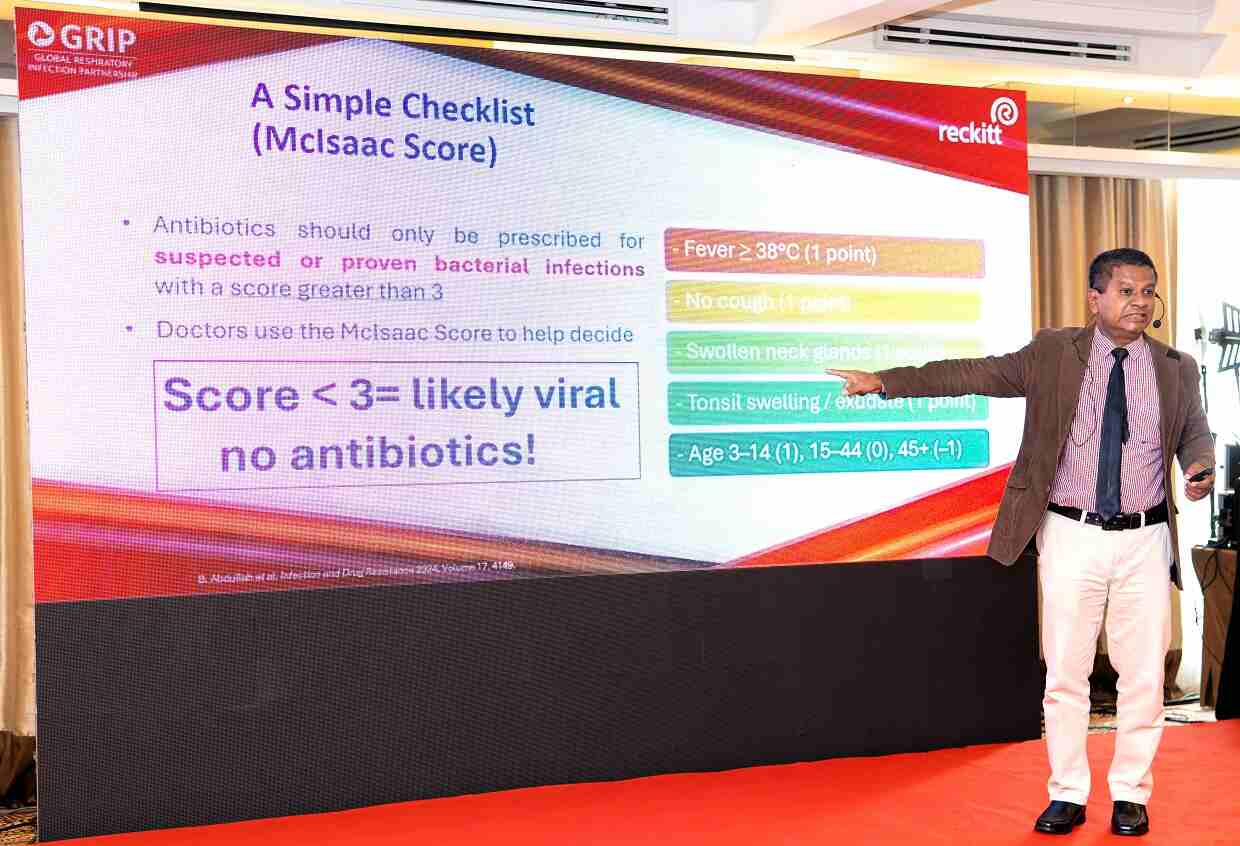Strepsils, the world’s leading throat relief brand, recently convened the ‘Resist Resistance’ Panel — a high-level medical dialogue featuring health ministry officials and top clinical experts — to address one of Malaysia’s most urgent public health threats: antimicrobial resistance (AMR).
Held in collaboration with the Ministry of Health and leading medical institutions, the panel featured Dr. Ho Bee Kiau, Consultant Family Medicine Specialist, Klinik Kesihatan Bandar Botanic; Dr. Rahela Ambaras Khan, Head of the Pharmacotherapy Branch, Kuala Lumpur Hospital; Professor Dr. Baharudin Abdullah of Universiti Sains Malaysia; Dr. Mohazmi Mohamad of University Malaya; and Dr. Koh Kar Chai, President of the Manipal Alumni Association Malaysia.

Together, the panelists warned that improper antibiotic use — particularly in cases like viral sore throats — is accelerating resistance among bacteria, threatening the effectiveness of life-saving drugs.
“The Ministry of Health is scaling up national interventions to address antibiotic misuse. Our focus is on policy enforcement, enhancing clinical guidelines, and running large-scale education campaigns to shift both public and professional behaviour,” said Dr. Ho. “Combating antimicrobial resistance requires collective responsibility, and we’re committed to leading that charge.”
A dangerous gap between diagnosis and prescription
The panel spotlighted troubling data: while only 2.8% of sore throat cases in public primary care clinics are caused by Group A Streptococcus (GAS) — the main bacterial infection requiring antibiotics — an alarming 22.3% of such patients still receive antibiotic prescriptions. Over 90% of those are deemed unnecessary.
Professor Dr. Baharudin, a co-author of the newly launched Malaysian Multidisciplinary Sore Throat Consensus, stressed that closing the gap between diagnosis and treatment is crucial.
“Clinical guidelines like the Sore Throat Consensus are designed to support better diagnostic decisions. When used correctly, they help reduce reliance on antibiotics for viral infections, which don’t benefit from them,” he said. “Our data shows a persistent gap between what’s medically appropriate and what’s being prescribed. Closing that gap is essential.”
Dr. Rahela echoed the importance of informed prescribing. “We see firsthand how misuse—often driven by misinformation—can lead to treatment failure and drug-resistant infections,” she said. “Empowering patients with the right knowledge is critical to preventing a future where even routine infections become untreatable.”

Changing mindsets
The panel highlighted the Malaysian Multidisciplinary Sore Throat Consensus as a pivotal tool in addressing AMR. Developed with input from various healthcare experts, the guideline promotes accurate diagnosis, patient education, and the use of symptom-targeted treatments.
Dr. Mohazmi emphasised the need for clear communication in consultations. “Patients often feel uncertain when told antibiotics aren’t needed. That’s why education is key—not just for doctors, but for the public,” he explained. “When people understand why antibiotics don’t work for viral sore throats, they’re more likely to accept alternative treatments and avoid contributing to resistance.”
Dr. Koh Kar Chai added, “Public awareness and professional guidelines are our best tools in this fight. We need to move away from a ‘pill for every ill’ mindset. Studies have shown that this approach can significantly reduce unnecessary antibiotic use, which is a critical step in combating AMR.”
Symptom-targeted care as a responsible alternative
The discussion also promoted symptom-targeted solutions such as throat sprays and lozenges, which can relieve discomfort without contributing to resistance. Strepsils spray, in particular, was cited as an example of effective treatment for viral sore throats that avoids unnecessary antibiotic use.
“Antibiotic misuse is not just a medical issue, but a public health crisis that demands immediate action,” said Mr. Harsh Takru, Reckitt’s Marketing Director for Health and Hygiene (Malaysia and Singapore). “The first step in combatting AMR is changing the way we think about common infections like sore throats and opting for symptom-targeted treatments, such as the Strepsils spray.”
As Malaysia confronts the growing challenge of AMR, Strepsils reaffirmed its commitment to supporting responsible throat care. The Resist Resistance Panel not only served as a platform for expert dialogue but also marked the formal launch of the Malaysian Multidisciplinary Sore Throat Consensus — a national step forward in protecting the efficacy of antibiotics for future generations.












Add comment